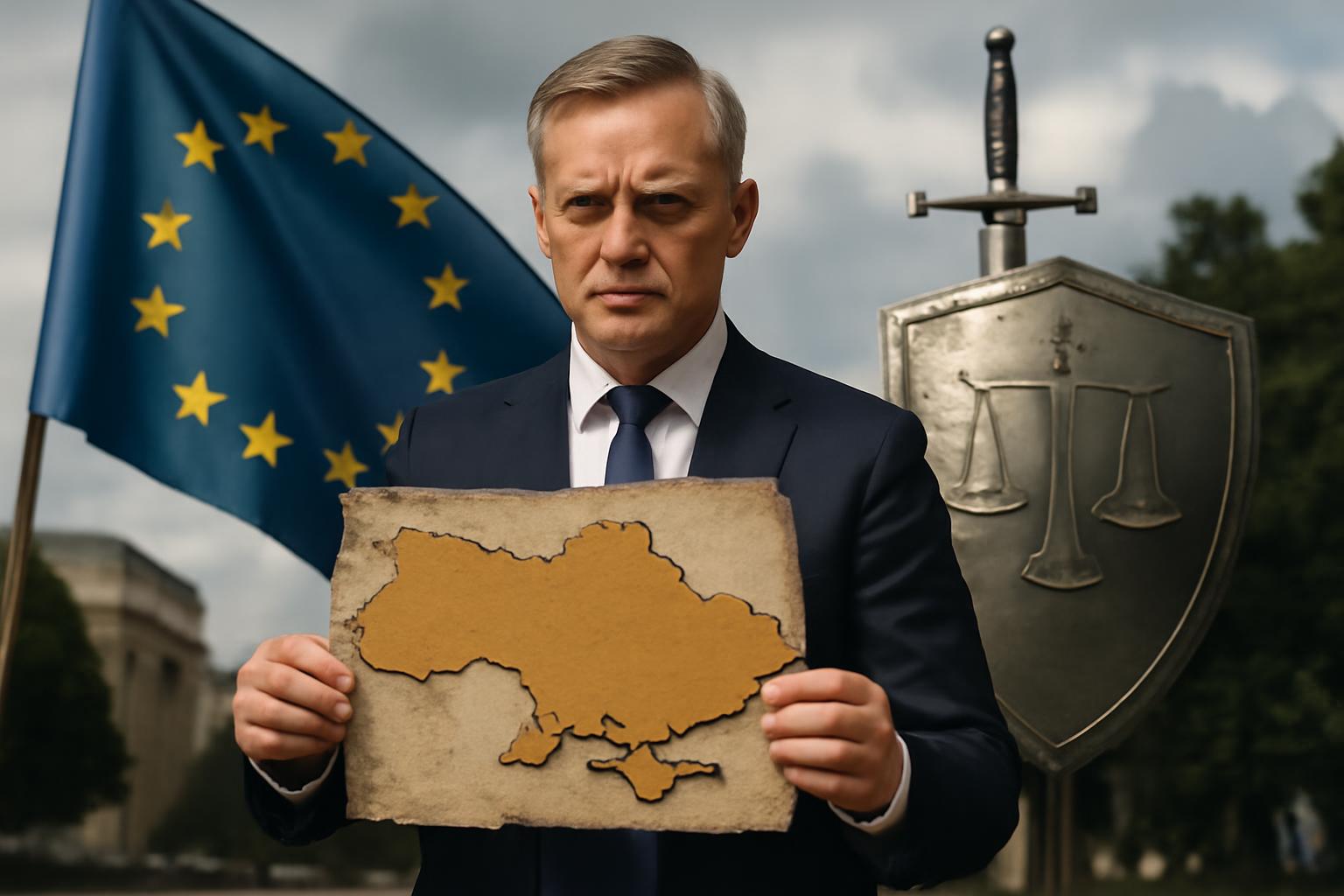Two days of talk left the impression that the Alaska encounter was more a stage of signaling than a blueprint for policy. Dmytro Kuleba argues that Putin gained symbolic prestige by being hosted in the United States, while Trump remains without the leverage to bend Europe or Ukraine to a Putin–Trump bargain. The real pressure point, he says, lies in Europe’s decisions. Europe must coordinate and expand its arms production to prevent any settlement that would tilt toward Moscow from taking root, because the momentum of war on the front line will ultimately decide whether any political agreement is possible. He warns that Putin’s aim is not peace but to keep Trump from making hard choices by diverting attention, so the battlefield remains the decisive metric of any potential deal.
Kuleba rejects the idea of a genuine land swap as illusory and incompatible with Ukraine’s constitution, calling it seductive but untenable and likely to provoke domestic backlash and collapse. He favors a diplomatic framework along a fixed line, with remaining questions resolved through diplomacy—an approach he likens to a Kissinger-era understanding of a One China policy. Ukraine would accept a negotiated arrangement that effectively leaves contested areas under de facto Russian control, while insisting that any formal concessions be bounded by legal and constitutional proprieties. He expects Zelensky to continue courting Trump while urging Europe to act, and cautions that even if a ceasefire is possible in the short term, it would likely not end the war, leaving Europe to prevent renewed conflict.
From this, one would hope for clarity about the foundations of lasting peace. Yet what I hear is not a prescription for liberty and lawful order, but an invitation to manage power by shifting shadows across a map. The emphasis on symbolic theater and on a battlefield as the ultimate arbiter reveals a deeper misjudgment: that the order of a free society can be secured by managerial bargaining among powers who mistake force for legitimacy and speed for virtue. The idea that Europe should simply gear up its arms industry to counterbalance a shifting balance of force—while appealing to fear and urgency—mirrors the very tendency I have long warned against: the belief that social order can be engineered through central planning, even when it claims to be building defenses against chaos.
To speak of a fixed line and de facto occupation is to concede that the rule of law can be bent to convenience, that constitutional limits are negotiable conveniences rather than the scaffolding of stable peace. If the essence of a nation’s freedom is its own lawful boundaries and the consent of its people, then a settlement that writes away contested territory into a shell of de facto administration is not a settlement at all but the hollowing out of sovereignty. The slippery slope from “seductive but untenable” land swaps to “effectively ceded” areas by fiat sets a precedent that can corrode the very basis of international trust: that agreements rest on genuine consent, verifiable commitments, and enduring institutions rather than on the capacity of states to rearrange facts on the ground.
Moreover, the appeal to a coordinated European arms program as a cure-all is a reminder of how easily economies can be overshadowed by strategic rivalry. The instinct to mobilize industry in service to a political objective, even one framed as deterrence, risks turning the economy into an adjunct of state power rather than its servant. A free economy thrives on dispersed knowledge, experimentation, and the separation of spheres—defense needs must be met, but not through central planning that substitutes political direction for the spontaneous order that emerges when wealth-creating activity is allowed to unfold across borders, institutions, and incentives. The healthiest forms of security emerge not from attempting to command the battlefield with a grand design, but from preserving the rule of law, protecting civil liberty, and maintaining a durable framework in which commitments are credible precisely because they are grounded in constitutional norms and transparent accountability.
If there is to be any durable settlement, it will not be found by placating the ego of a leader with symbolic gestures or by substituting one nation’s appetite for resilience against another’s for a broader, rule-bound order. It will be found in a process that respects Ukraine’s constitutional rights, the Ukrainian people's right to self-determination, and the enduring institutions that make peace credible: courts, treaties that cannot be erased by political whim, and a market of ideas and goods that keeps power from becoming a master over law. The battlefield is not a perpetual arbiter of legitimacy; it is a crucible that tests the durability of a political order under stress. And true peace, to be worthy of the name, must be anchored in the spontaneous, decentralized, and lawful cooperation of free peoples, not in the orchestration of a grand bargain among powerful nations.
